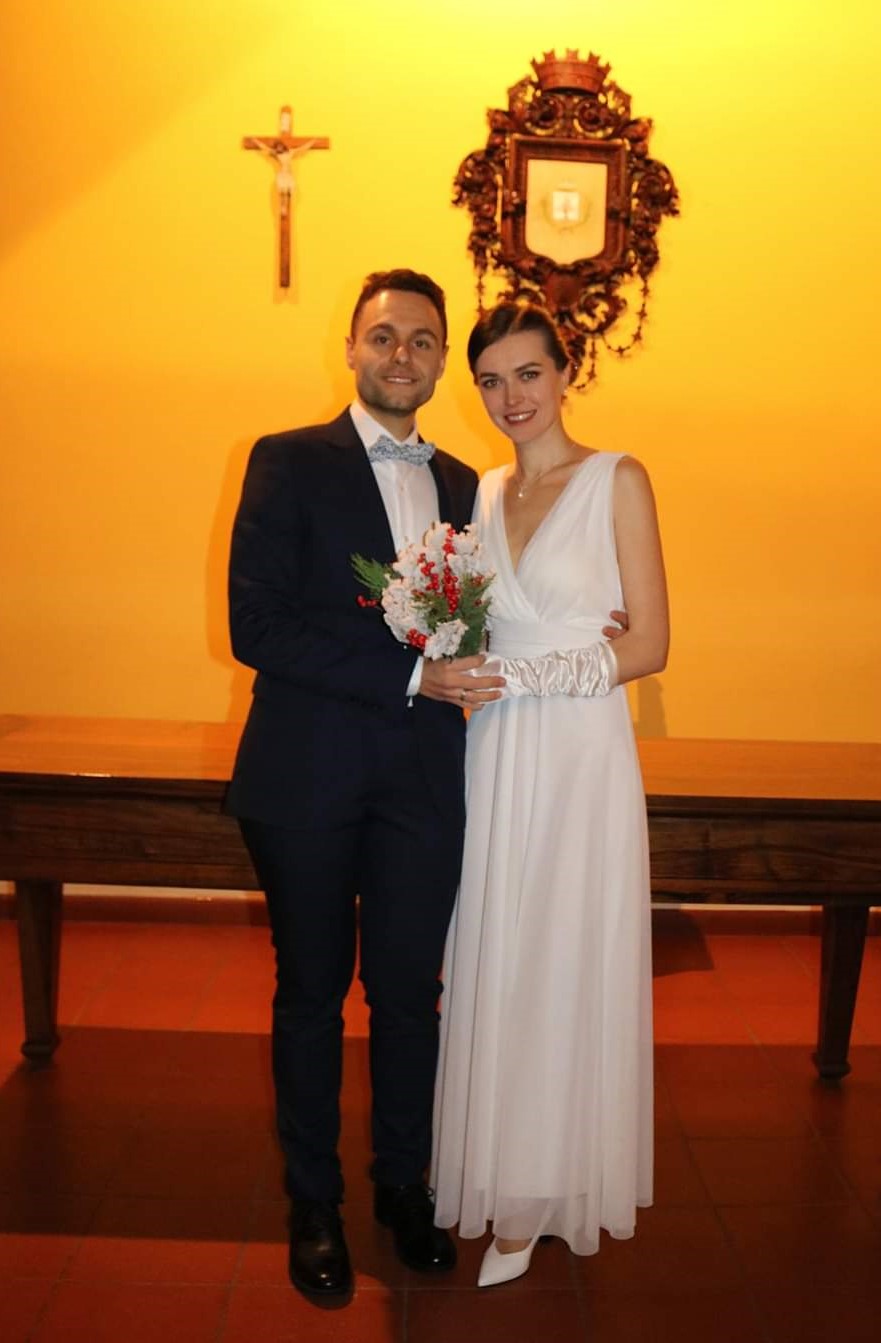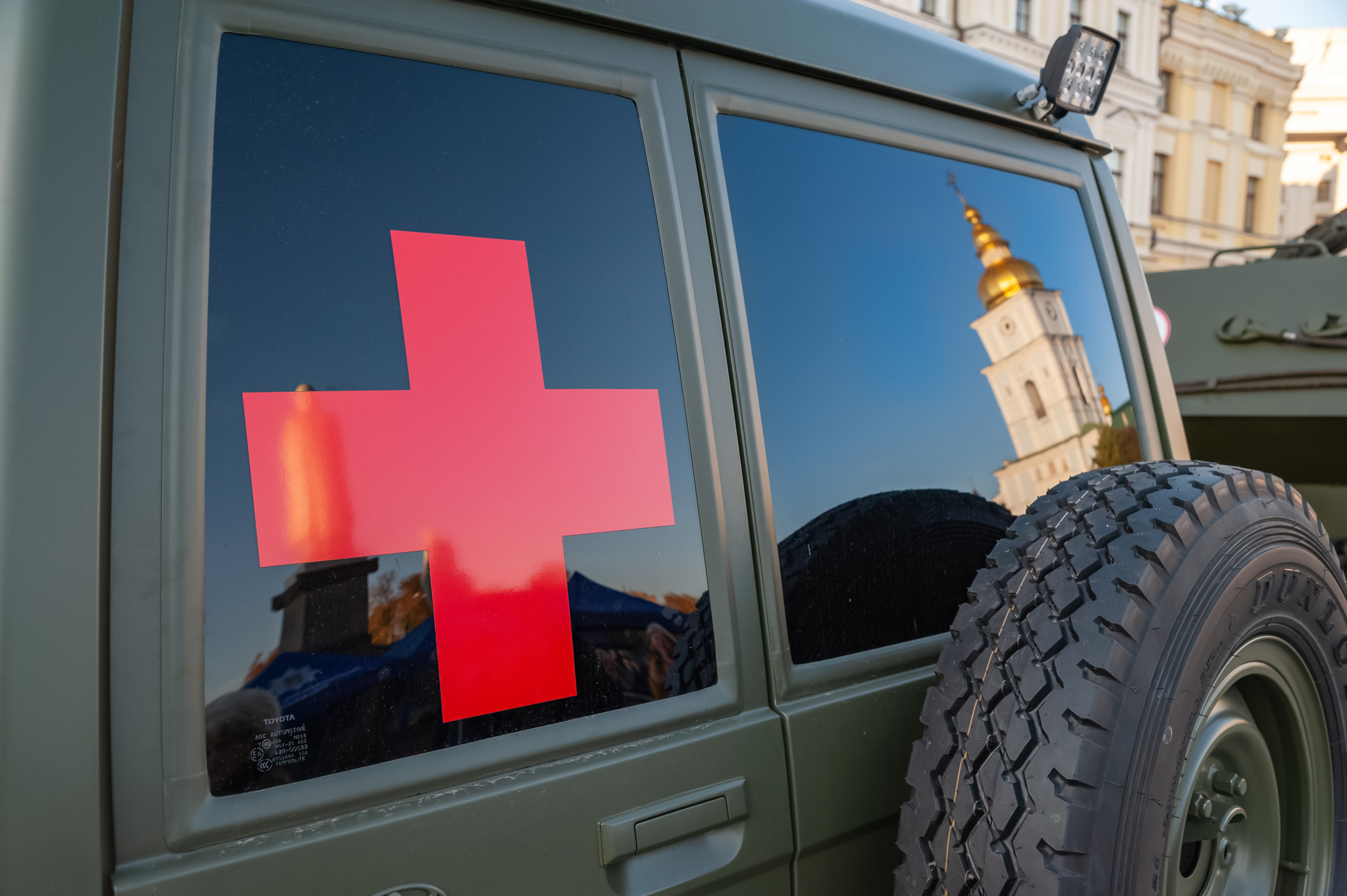Ukraine: Perspectives on the war from a Ukrainian physician in Italy
Dr Rostyslav Boyko has launched an appeal to raise funds to support colleagues who are busy coping with what many believe could soon become a humanitarian catastrophe.
Interview with Dr. Rostyslav Boyko
Article translated from the original Italian version
esanum: How long have you been living in Italy and why have you chosen to live here?
I have been living in Italy since 2010. I visited the country for the first time in 2007, when I was 13 years old. I came to visit my mother, who had moved here in 2001. I was living in Ukraine (Ivano-Frankivs'k), being looked after by my grandmother, while she was teaching piano here in Italy. My mother is a musician and was forced, like many others, to leave Ukraine to try to give me the chance of a better future.
When I came to Italy for the first time in 2007 and I was able to hug my mother again, it was very emotional. At that time I wasn't thinking of moving, I liked living at home in Ukraine. But then 2010 came, Viktor Janukovych won the presidential election and a lot of things changed for Ukraine. I decided to leave, to come and live in Italy.
Today I live in Modena, where I attend the postgraduate school of Allergology and Clinical Immunology. Last December, I managed to reunite with my fiancée, who is originally from Odessa. We got married and thank goodness she is now safely here with me in Italy.
esanum: What did you do last Thursday when you heard the news of the outbreak of the war?
I was not taken by surprise. For about three months, every morning I woke up and anxiously read the news on various news sites. Those who are Ukrainian, like me, were not surprised by this attack.
For months, every morning I would breathe a sigh of relief. "So far so good," I told myself. Then the war came and my world fell apart. How could I wake up my wife, who was sleeping next to me, and tell her that our country was under attack?
That was a terrible awakening for me, pure terror for my wife, who has her mother and sister in Odessa, one of the main military targets of the Russians. We couldn't get in touch with them, we feared the worst. In the end we managed to get news from them, they were fine. Every morning since Thursday has been a nightmare.
esanum: Among the people you know, is there anyone who is trying to leave Ukraine?
Among the people I know, so far no one has left Ukraine. There is a lot of fear, but there is also a lot of anger. Those who are there want to defend their families, their belongings.
I know of many who are moving to the western part of Ukraine, which is now quite calm. There is a lot of solidarity with the Ukrainian people. From Odessa, where my wife was born, many are trying to move to Romania. Fortunately, without great difficulty at the border.
esanum: Is the Ukrainian health system able to withstand such a devastating event as a war?
No. When a nation goes through periods of crisis, when governments lack vision and strategy, the first institutional sectors to suffer are education and health. These are two sectors where it is often easy to make cuts, to save money and redirect it elsewhere. Ukraine is certainly no exception.
The cost of living in Ukraine, in many respects, is not so different from Italy, but a physician in Ukraine earns about 450 euros a month. There are also those who earn less. The state does not invest resources in healthcare. In some Ukrainian cities you can arrive at the hospital with an acute myocardial infarction and only be treated if your family can obtain the medication.
This health system has already had to deal with the COVID-19 pandemic. It is not hard to imagine what impact a war might have on this crippling healthcare structure.
A red cross on the window of a military medical vehicle of the Ukrainian army, Kyïv 15 October 2021
Credit: Alex Puhovoy, Adobestock
esanum: What can European physicians do?
I thank my medical colleagues, all health workers, but also those who do other things in life and are helping Ukraine in whatever way they can. I know that many colleagues have taken to the streets to demonstrate against the war, others are collecting medication, others are collecting donations.
What more can physicians do than this? I believe that if the war does not end soon, many people will have to be taken out of Ukraine for treatment. Already today in Ukraine there are women who give birth to their children in cellars, because they are afraid to cross the streets to reach hospitals, because they are afraid of being attacked. I don't know if, how and when Ukrainian patients will arrive in the various European countries.
I don't know if European physicians can do anything to make this happen soon. What is certain is that Ukraine already needs the expertise of European physicians, their knowledge, their experience, their time. Also their hospitals and equipment. If we could organise medical transport, we could give hope of survival to those who are otherwise condemned to failure.
esanum: What is the thought that most often accompanies you before going to bed these days?
A 5-year-old girl was killed with her parents while seeking shelter in a nearby town. That little girl knew nothing about Russia, about NATO, about Crimea. She simply wanted to live and have a happy childhood as every child in the world should.
For donations (website in Italian): Medical interns for Ukraine on the Donation Network / Medici specializzandi per l'Ucraina su Rete del Dono

